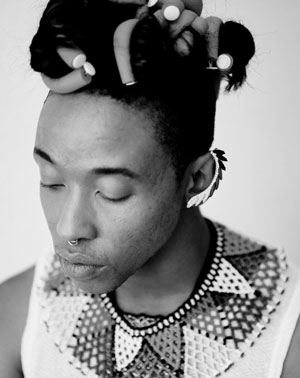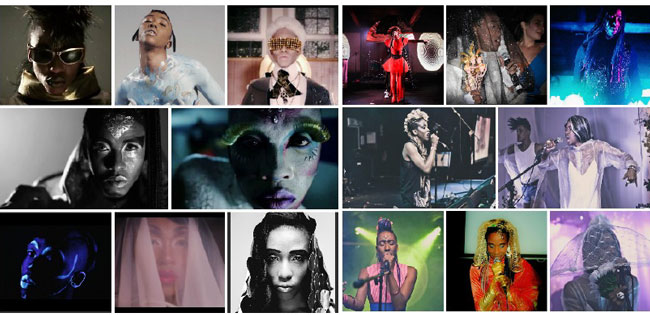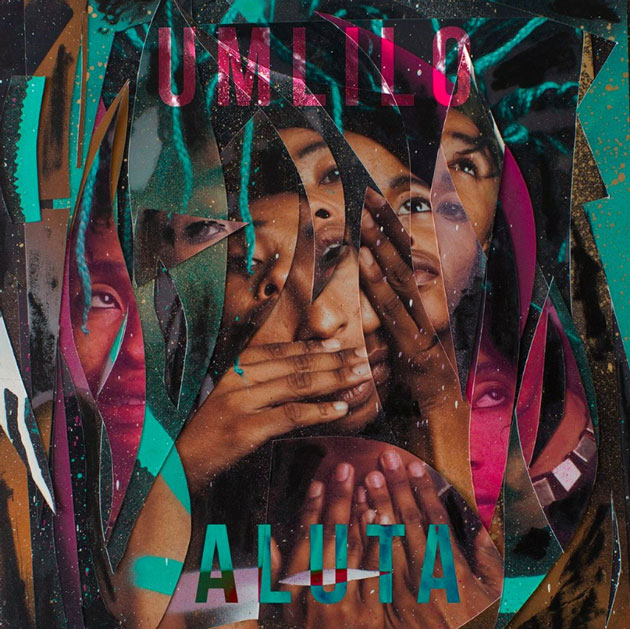
Top stories






More news
















There are certain similarities, of course - just because they both exist within the same body. I think that, when I’m on stage, I feel a lot more like my true self: strong, determined, quick witted and able to exist in the moment. When I get off stage I’m almost the opposite: very chilled, quiet, and anxious. I’m a Libra so it makes sense to me that I’m always trying to find a balance between my multiple personalities.
I’ve been back in Joburg for almost eight months now and it’s been really inspiring discovering the urban jungle again. There’s so much fashion, food, art and people and it has begun to influence my own art. I’ve been taking in the architecture, the man-made forestry, the different cultures that coexist and all the vibrant flavours Jozi has to offer.
Yes, definitely. I can never divorce myself or my music from the issues that affect my life and many other lives on a daily basis. I can’t imagine singing about bubblegum without it somehow turning into some kind of socially aware message. It’s something that comes so naturally to me and I feel lucky to be able to translate into a music medium.
A lot still needs to happen in terms of supporting the lGBTIQA community. Patriarchal, colonial and cultural forces that cause deep oppression need to be broken down completely and a zero tolerance for any type of hatred, rape, misogyny, homophobia and racism needs to be adopted across the board. European and American countries would have us believe that the struggle for oppressed queer people is near its end, but, in Africa, it’s a different story. Hell, even in America it’s a different story: the death toll of trans people rose last year and many believe it’s because there is a lot more visibility of trans people in the media, which also increases trans-phobic reactions. I’m not saying we haven’t made strides in creating equality for queer people, but it’s the tip of the iceberg. People don’t realise that oppression is oppression no matter what skin you’re in, so if you against racism or misogyny you have to also be against homophobia, trans-phobia, xenophobia etc. It’s not tunnel vision, it’s a full circle. This what people in power fail to grasp and extend to the masses.

I think being African for me means being able to take every unique make-up of my being and project it to the world in a way that creates a different perspective on Africa. I am a product of dichotomy from the colour of my skin, my hue, the languages I speak, the people I love, the places I inhabit and the work I do. It’s all contrasting and contradictory, just like Africa. To be African for me is to not try to obliterate any traces of ancestry, but be able to embrace being a global citizen who is rooted in the motherland and its complexity. It means making peace with change being inevitable, but learning from the mistakes of my forefathers and mothers. It’s keeping the legacy of democracy alive, but fuelling the fire in my belly to make the world see us as we see ourselves. Being African, for me, means making sure the blood of the people that came before me was not shed in vain and that this continent is the root of all of things beautiful and majestic and remembering the magic is my daily motivation.
I think our local music is having a much more global appeal than ever before and that alone is exciting. There are so many people switching lanes and changing things up, experimenting with sound locally and the fact that 90% local music will be played is a great achievement, the only worry is quantity over quality. We’ll have to see how this new development works out for local artists.
I think my upbringing and my music are so synonymous because I am still heavily influenced by sounds of kwaito, blues, choral, Maskandi, gospel, hip hop, pop, R&B, and rock. When I mix it all up I can hear it in every one of my songs. I think growing up in a time when SA was 'free' and experimenting was really great influence for me. I was lucky enough to have known and met a lot of the influencers of our music and each of them left an indelible mark on me.
I am heavily involved in creating my music videos because the only person I fully trust and understand is myself. No one can do me like I do myself, so it’s better for me to be involved from the start to avoid salty tears. I have to learn to let go of certain things, but I just can’t seem to. I usually sit down with my directors and producers and try to inspire them with what I imagined in my head for the song. Because I have a close-knit team, there’s no lost-in-translation moments, so we usually inspire each other from beginning to end and are not afraid to say when something isn’t quite working.
I think it would be one of those heavily sequined 'belle of the ball' gowns in the shape of a Kurta with a high slit and low-cut neckline with giant Alexander McQueen platform boots and very very big hair.
I think having my album artwork, which was designed by Dylan Culhane, exhibited all over Europe including Germany and Switzerland was a huge moment of recognition for me. It’s an honour for me to have my work so early in my career being shown at museums and galleries, it’s almost too surreal and weird.

I’m shooting a new music video for my last single off 'Aluta' called Umzabalazo. It’s going to be a little different from anything I’ve done before and I'm working with ALV and Odendaal Esterhuyse again to bring the concept to life. We had such a blast making my last video Reciprocity. Then I’m launching my new website as well as finalising my third EP, entitled 'Uhuru', which will complete the 'shades of Kwaai', 'Aluta' trilogy. We’re also launching some new live winter shows with my girls Stash Crew and Annalyzer as well as plenty more jams for the clubs.
This is my 'How Sway?' emoji.
